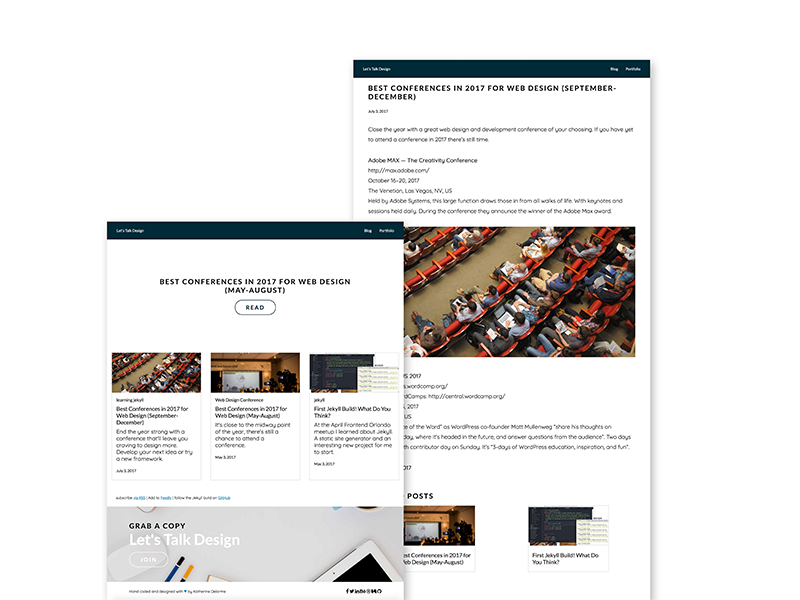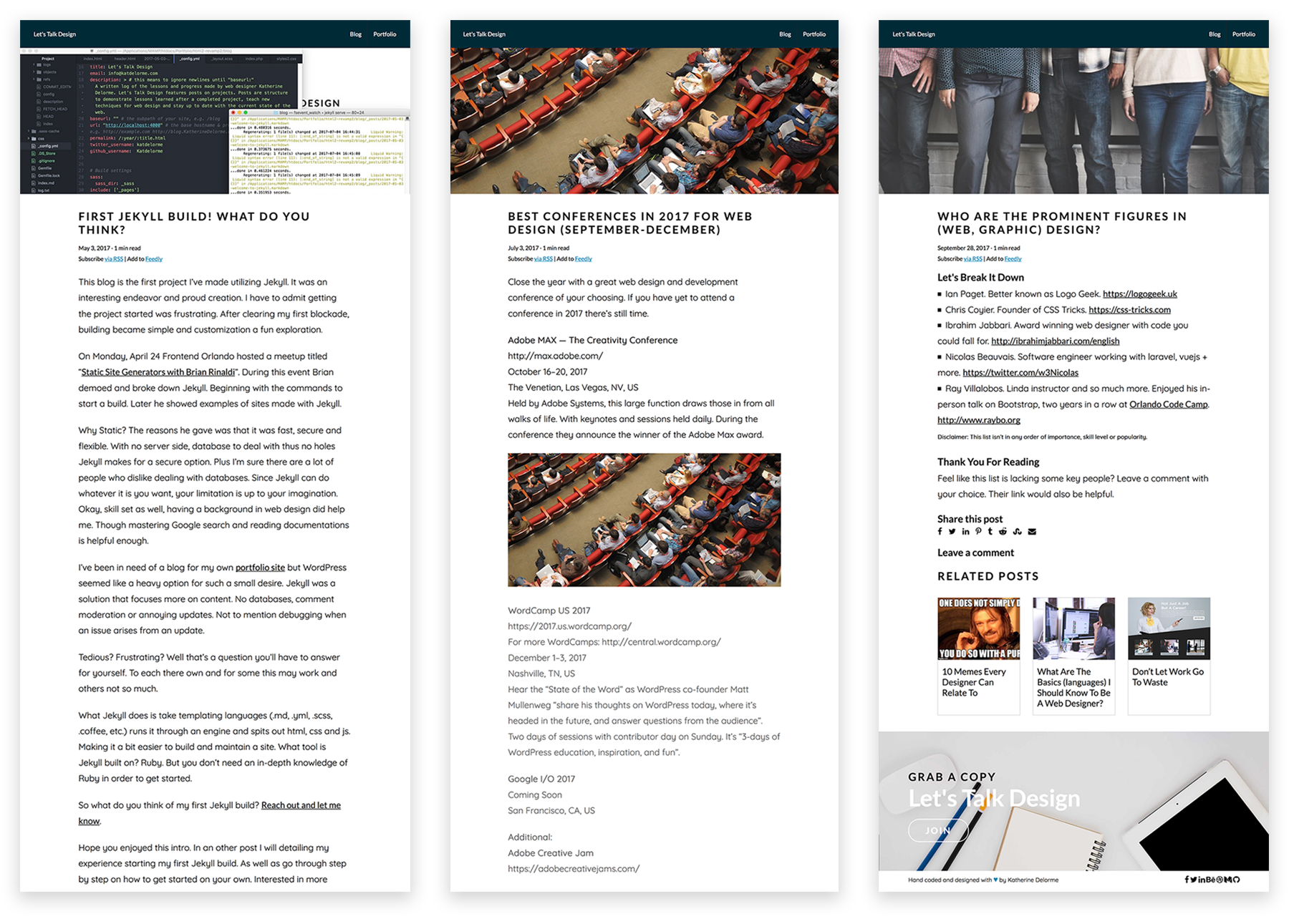So Why?
I wanted to create a lightweight blog for a developer. I wanted to try to create a blog site with the static site generator Jekyll. The focus of the blog's development would be 'content'. Most Content Management Systems(CMS) have many add-ons that affect page speed and performance. The idea was to design and develop a blog where the post would be the focus avoiding the need for any heavy plugins.





